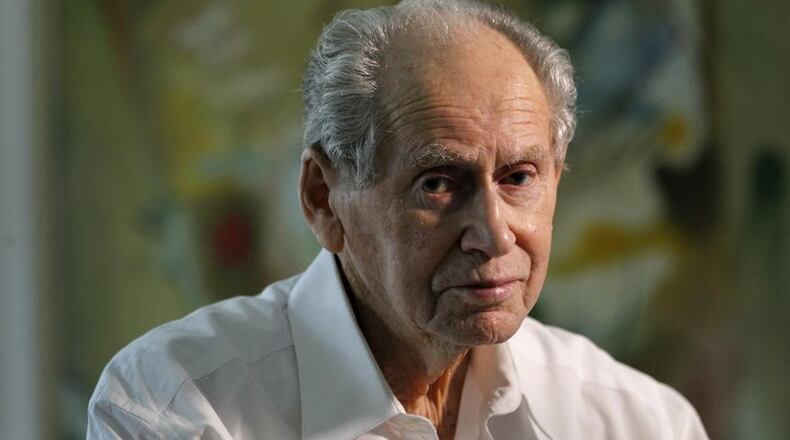Heider lost three sisters, three brothers, his mother and father, and an infant nephew in Nazi concentration camps.
He was the only member of his family who survived.
RELATED: Holocaust survivor shares story of resilience during Wingman Day
German dictator Adolph Hitler and his Nazi regime killed more than 6 million Jews and millions of others in concentration camps in World War II.
In 1941, the Nazis confiscated his family’s farm, sending them with thousands of others to a Jewish ghetto in Bialobrzegi in Nazi-occupied Poland until they were dispersed to concentration camps and faced near-certain death from gas chambers, guns or slow starvation.
“From then on, I never saw my mother or my whole family ever again,” Heider told the Dayton Daily News in a 2017 interview.
RELATED: 93-year-old Holocaust survivor gets long-delayed bar mitzvah in Dayton
His family perished in the Treblinka concentration camp. He endured and survived five camps, including Auschwitz and Dachau.
At one time, he found himself standing in front of infamous Josef Mengele, an SS officer responsible for selection of gas chamber victims, who waved him to the right.
“If he had told me to go left, I wouldn’t be here,” Heider told the Dayton Daily News in 2010.
Heider weighed just 75 pounds when he was liberated from Dachau. He said that the most beautiful sound he had ever heard were the words: “Americans! Americans! Americans!”
"Anyone who has attended one of his speeches will hear Heider's voice across the 100 pages of his memoirs, which include numerous photos that range from his childhood through recent times," wrote Marshall Weiss, publisher of the Jewish Observer, in a story published in September, after Heider published his memoirs, Miracle of Miracles: A Dayton, Ohio Man's Story of Holocaust Survival.
Heider, his wife, Phyllis, and their young son, then two, arrived in Dayton in 1949 with help from the Hebrew Immigrant Aid Society and Dayton’s Jewish Community Council, now the Jewish Federation, Weiss wrote.
He and his wife settled in Dayton, and opened a metal recycling business and were active members of Beth Jacob Synagogue and the Jewish community, his obituary noted.
Weiss, in a phone interview Tuesday, said there was no question that anytime Heider shared his memories of the Holocaust it was “emotionally agonizing” for him.
He felt the need to share those memories in spite of that.
“It was emotionally agonizing and physically and emotionally draining for him for him to relive that,” Weiss said.
Weiss knew Heider for about 24 years.
The very happy thing about the end of his life was that he was able to see his memoirs published, Weiss also said.
“He had a photographic memory ... he remembered everything with such detail. And for someone who didn’t know English when he came to the United States, his command of the English language was superb.”
About the Author

